Betsill's Beautiful Sticks.
There was a time when no man was complete without a few essential articles: hat, handkerchief, pocket knife,. . .and stick. If you're in England this was perhaps replaced by the umbrella. I grew up watching Patrick MacNee as John Steed, Patrick McGoohan as John Drake, and Jeremy Brett and Edward Hardwicke's Holmes and Watson and had it indelible impressed on me that these items were not eccentricities but everyday tools.
My childhood television menu combined with many hours spent studying the devices of lutherie and architecture, not to mention my ever-growing fascination with the Edwardians, have converged in stickmaking. I have finally decided to create a page for this craft, with which I amused myself for years as idle woodworking, to the end that I might engage with the larger stick-making community (I see you out there) and perhaps rid myself of a 15-year stockpile. A man, after all, needs only so many sticks.
Besides in the few books that are available, I have seen specimens in the Victoria and Albert Museum (Prince Albert's collection) and at the Smithsonian and Met collections. I blend these styles and shapes found in captivity with the architectural fancies found in Queen Anne turnings and Classical shapes to come up with what I believe is a truly unique product. You will find no elaborate carvings here. I am a wood turner. My particular interest is extending the turning well down into the shaft of the stick on most models, often using octagonal cross-sections in combination with "secondary grips".
One thing I decided at the onset of my stickmaking is that I would make no two sticks alike. There are enough combinations to be had of the Classical Shapes to ensure eternal freedom from monotony. That combined with the fact that when I sit down (well, stand up) to turn a stick it is as a respite from turning 24 theorbo pegs of the same pattern and my gouge will be guided by fancy and not a brass template.
The following is a healthy selection of my work, divided into town, country and my personal fave: the alpenstock.
Enjoy.
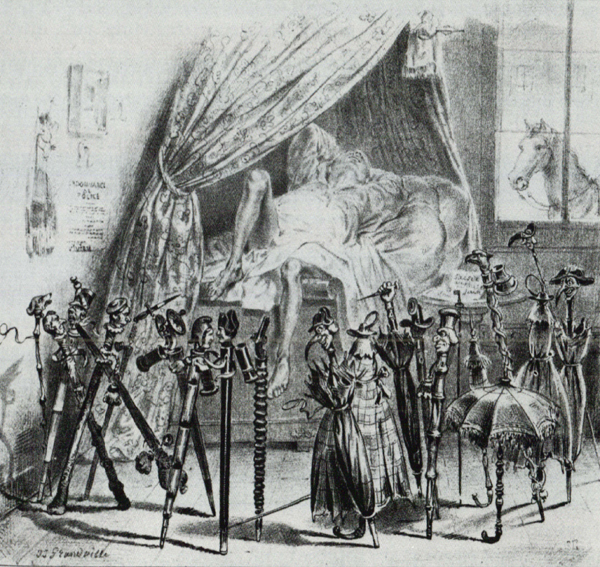
The Mutiny of the Canes and Umbrellas, Cranville, 1831
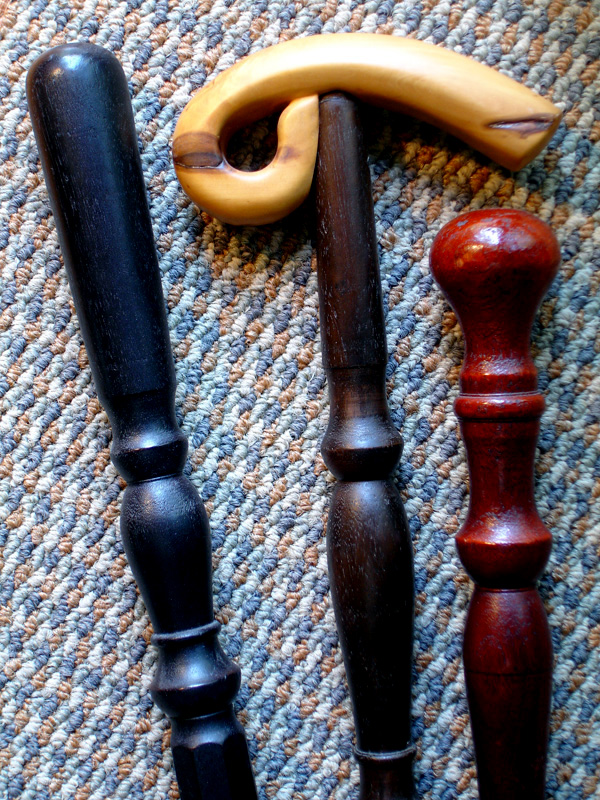
Staff, handle, and knob: the three primary grip types.
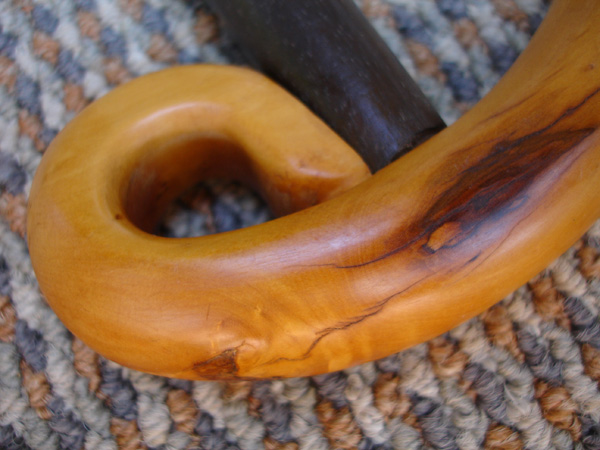
Handle wood is selected for dimensional stability and pleasing grain. Here, some of the bark is left on this boxwood handle. The figure is gloriously enhanced by the natural lindseed oil finish.
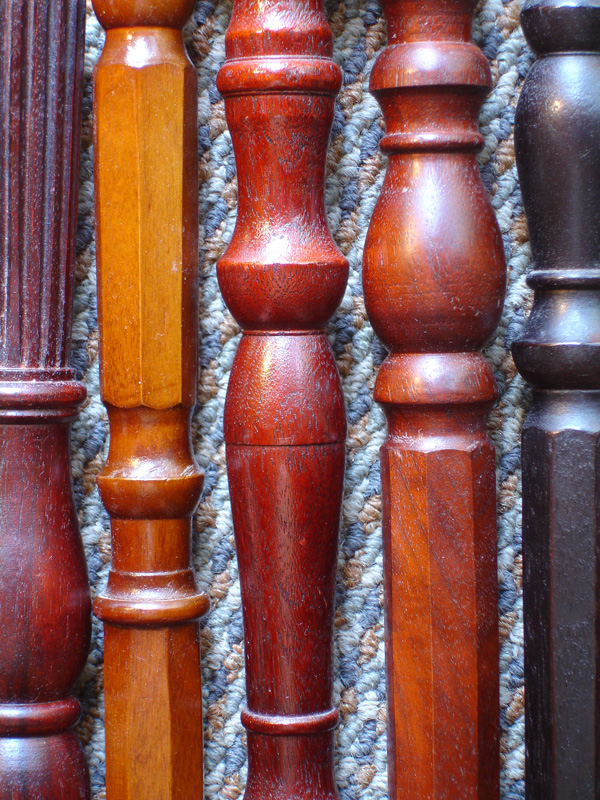
Custom means Custom. No two sticks are alike, ever. These have all been used repeatedly, so don't look too critically at the finish or distress.
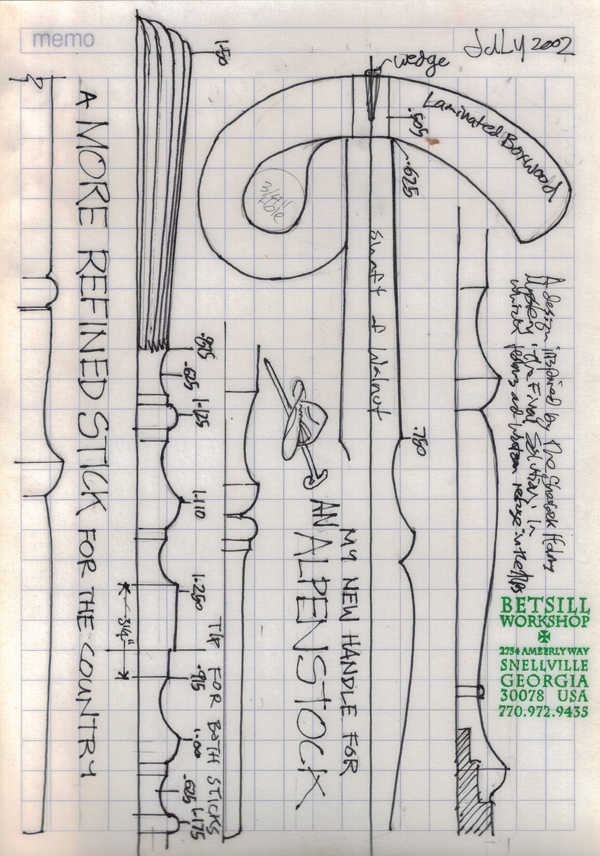
Although no design is repeated, I have drafted out for posterity a few of the designs.
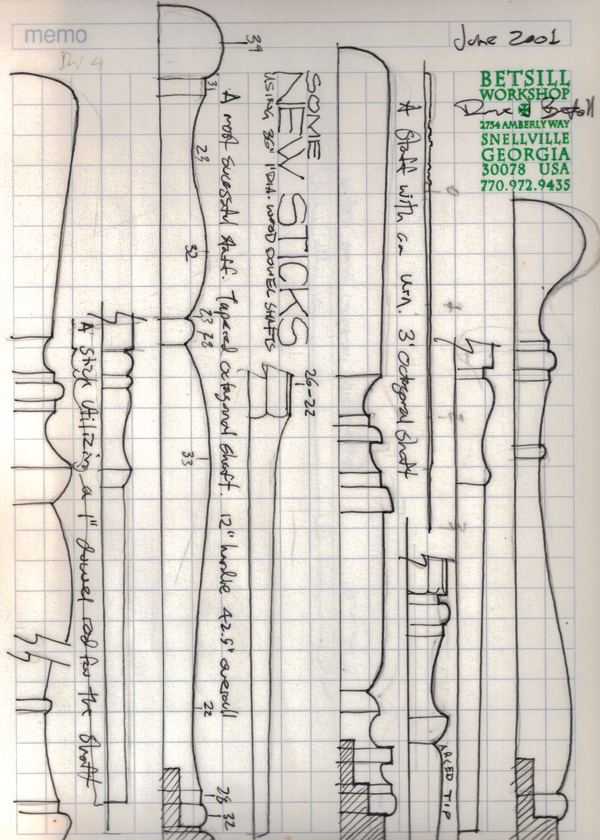
Following are some sticks i have taken as inspiration. . .
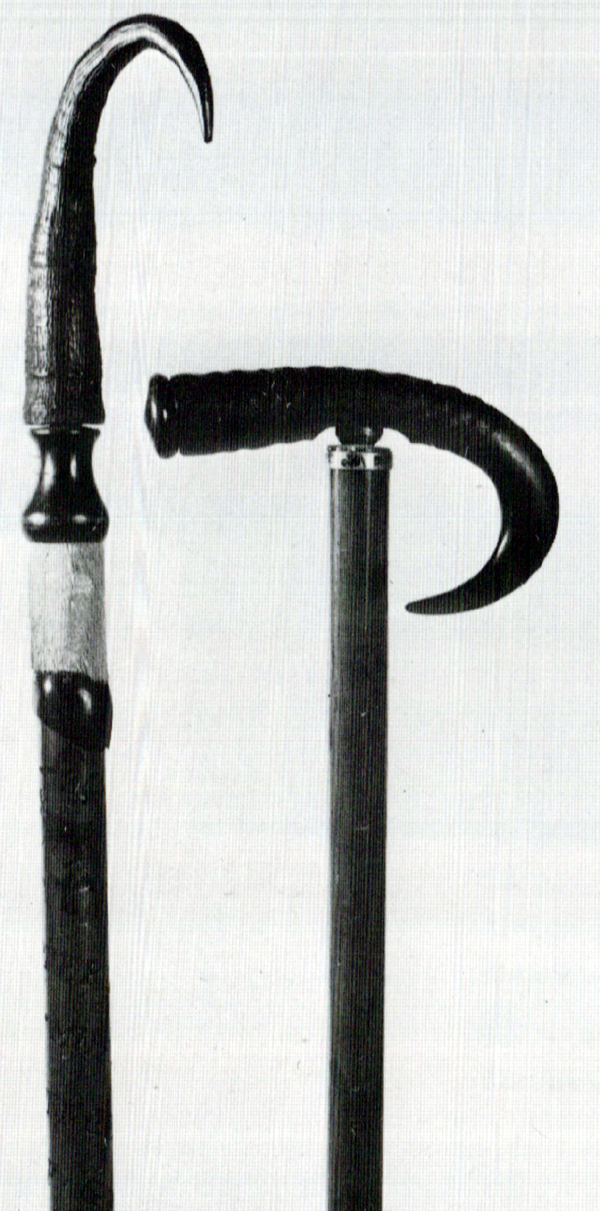
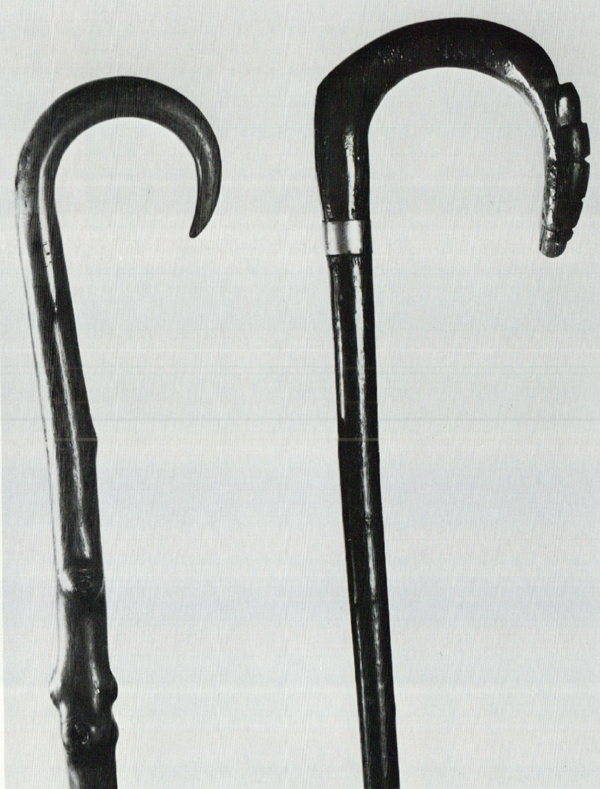
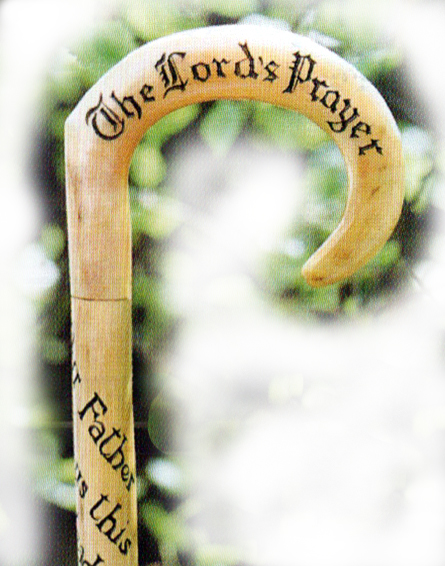
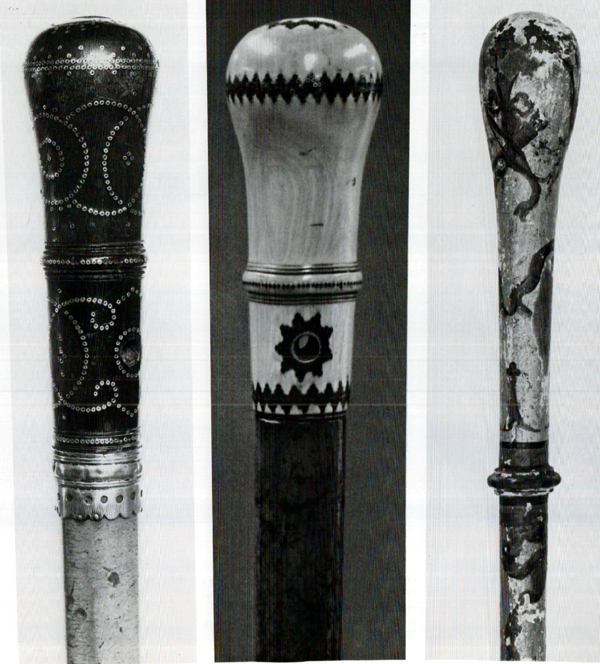
And here is a great stick collection at FDR's Little White House in Warm Springs, Georgia. . .
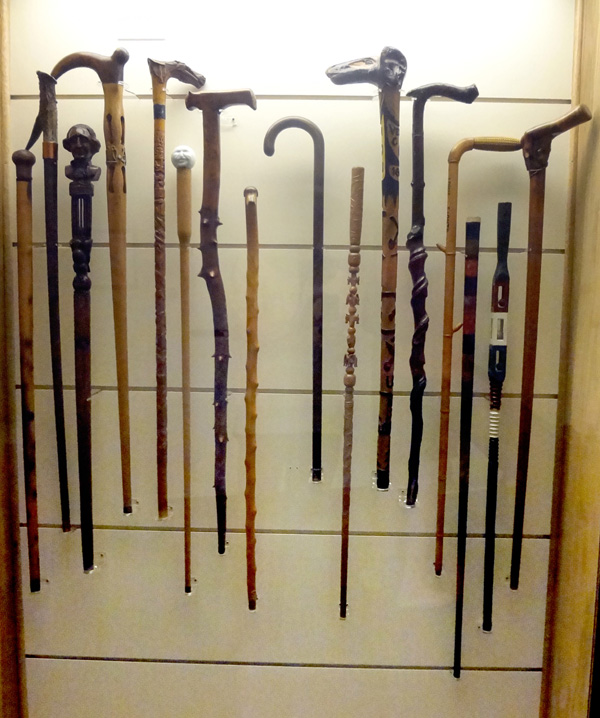
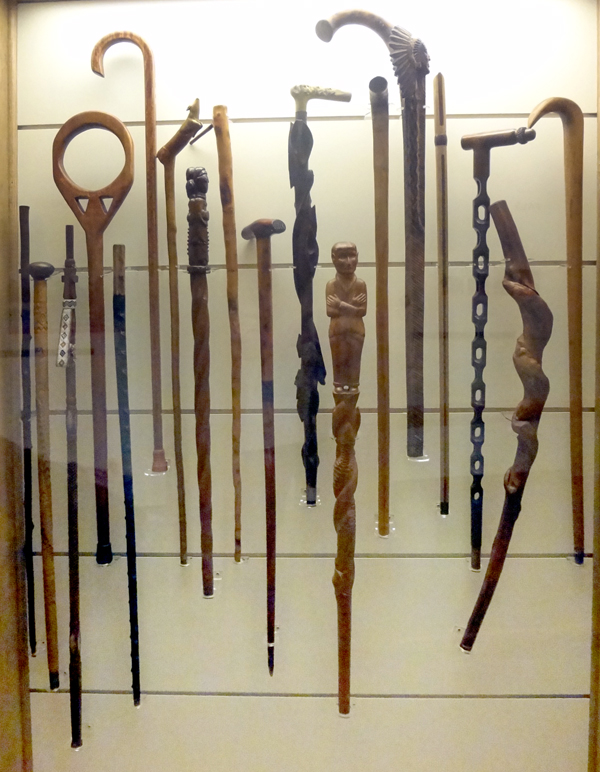
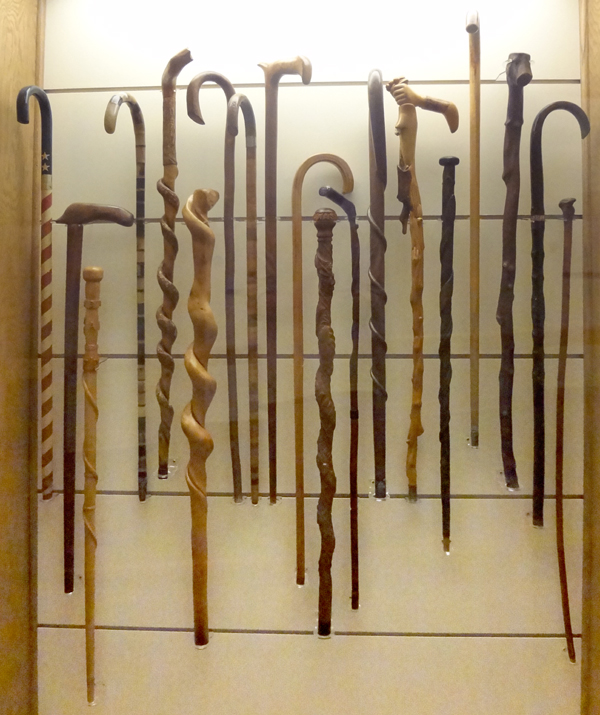
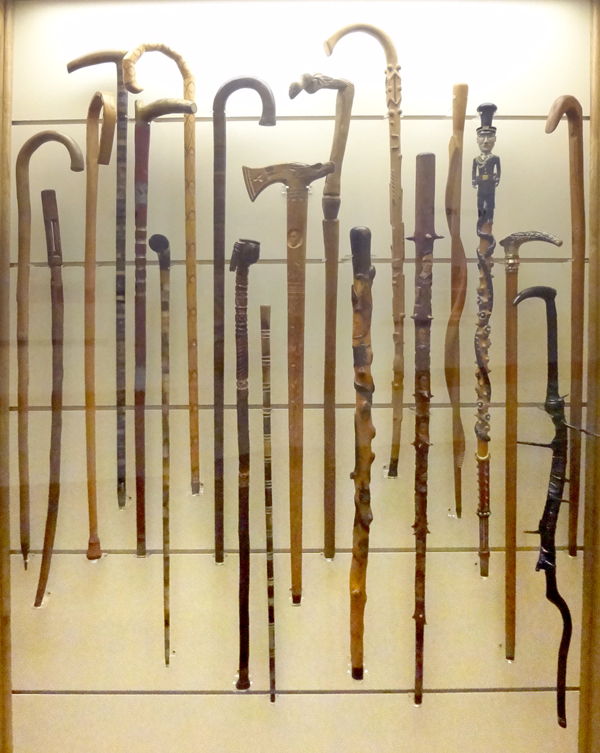
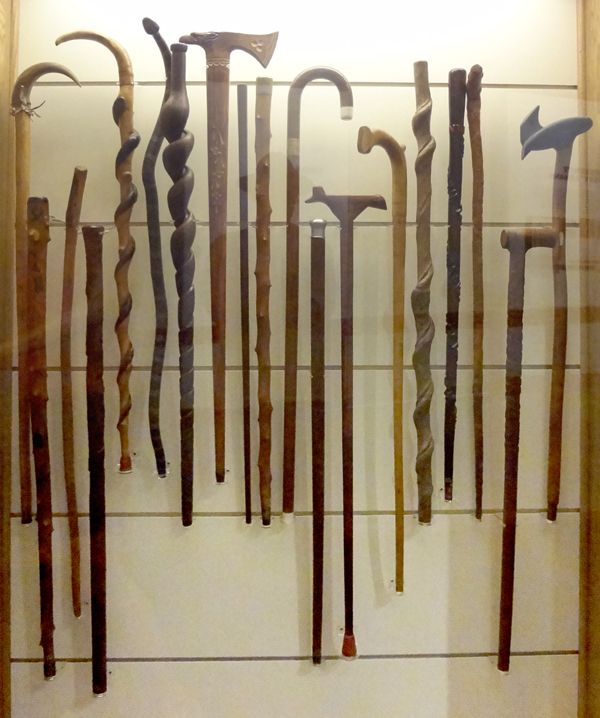
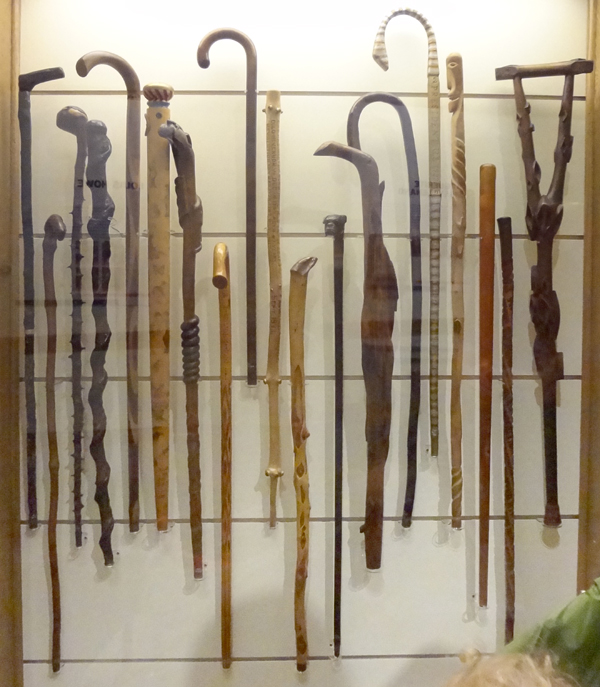
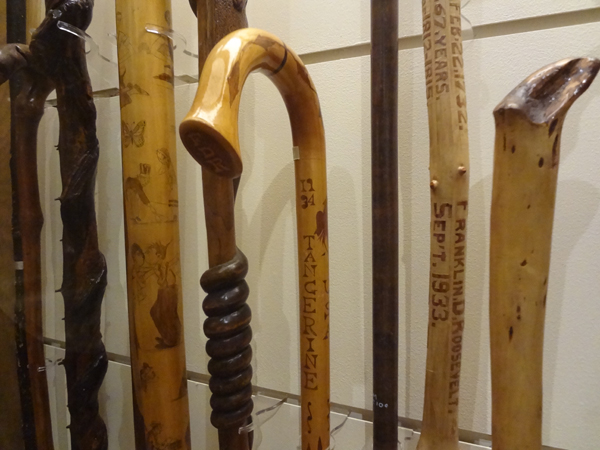
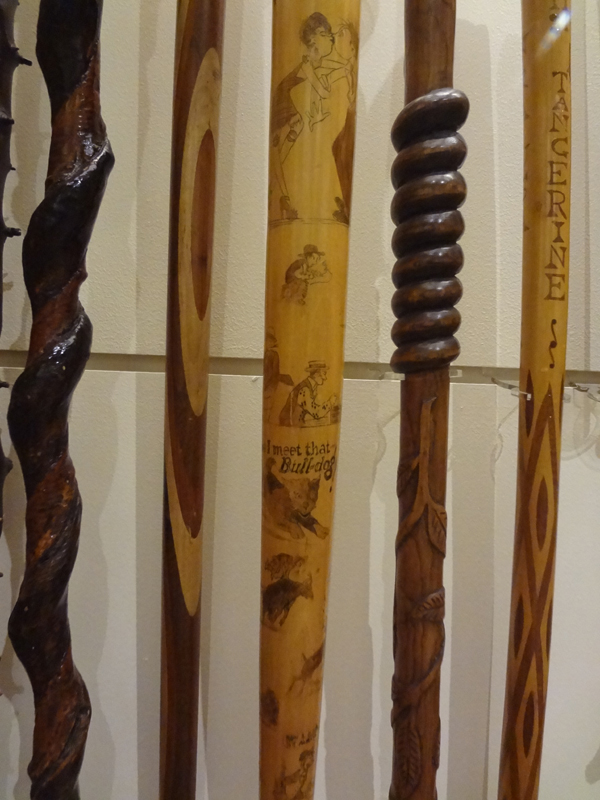
Town.
Typically
the most ornate and with a gloss laquer finish. Darker woods such as walnut
are the norm. I do not stain my sticks because this will quickly show
wear and is not easily touched up by the owner. If you are looking for
a simple black laquered shaft with an ivory or horn handle to accessorize
your tuxedo you will not find that here. There are pleanty of people producing
those out there. Re-google.
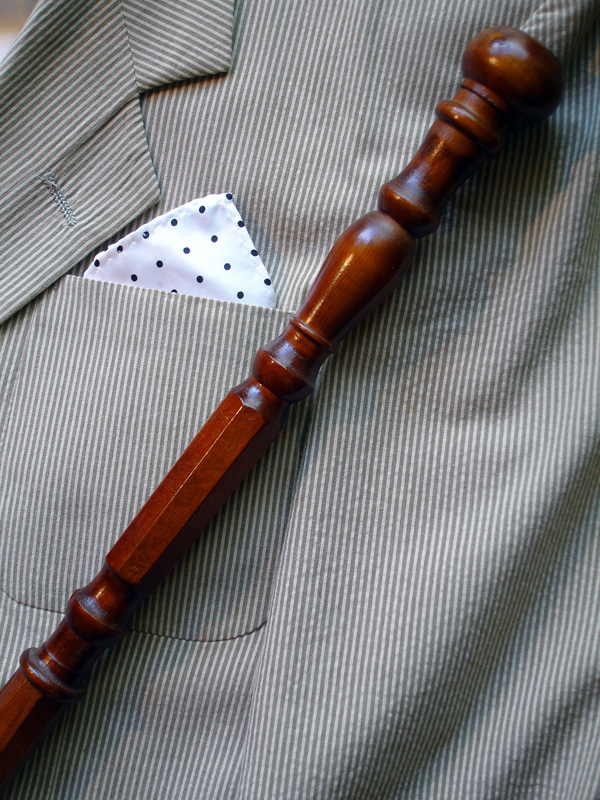
Town style showing "secondary grip" with octagonal cross section for "swaggering". This stick in walnut with octagonal shaft.
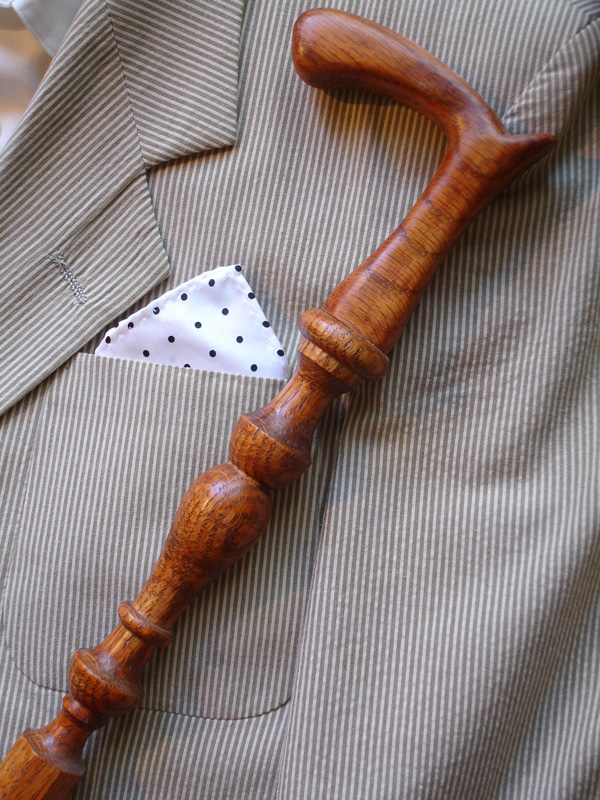
Town style with handle, in oak with tapered octagonal shaft
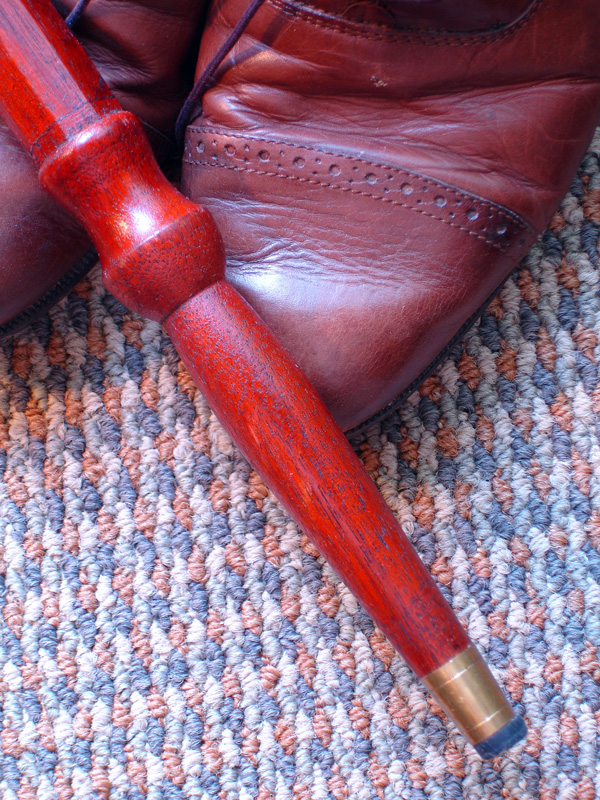
Town style tip #1
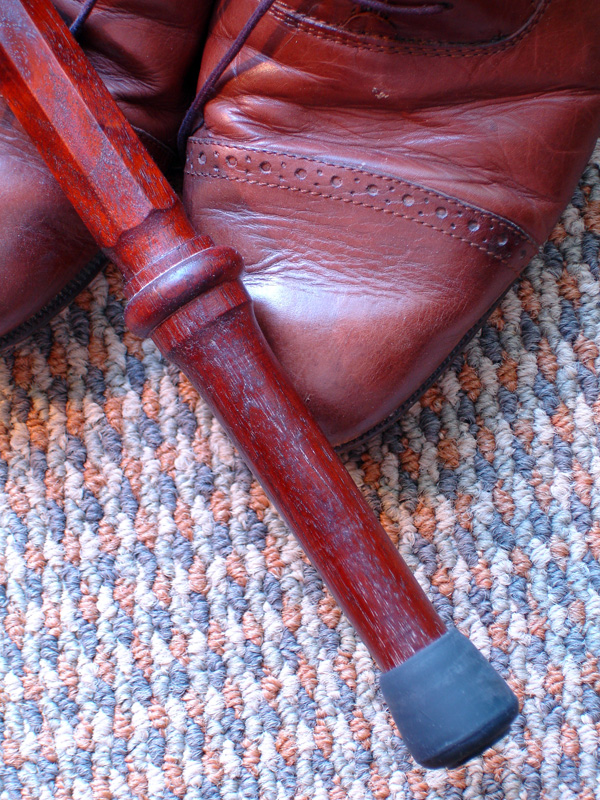
Town style tip #2
British Colonial.
Between
town and country is this fellow, which combines refined high-relief turning
with a heftier weight and a "country" tip.
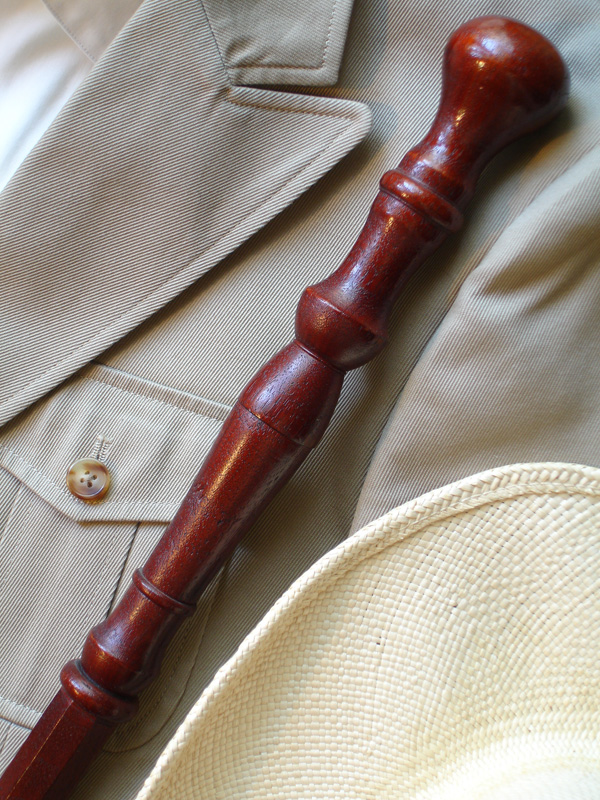
This stick in walnut with octagonal shaft.
Country.
Heavier,
with less turning on the shaft and a steel tip. Navigate dogs, ply the
moors, survey property. I imagine Professor Challenger carried one of
these through Maple White Land.
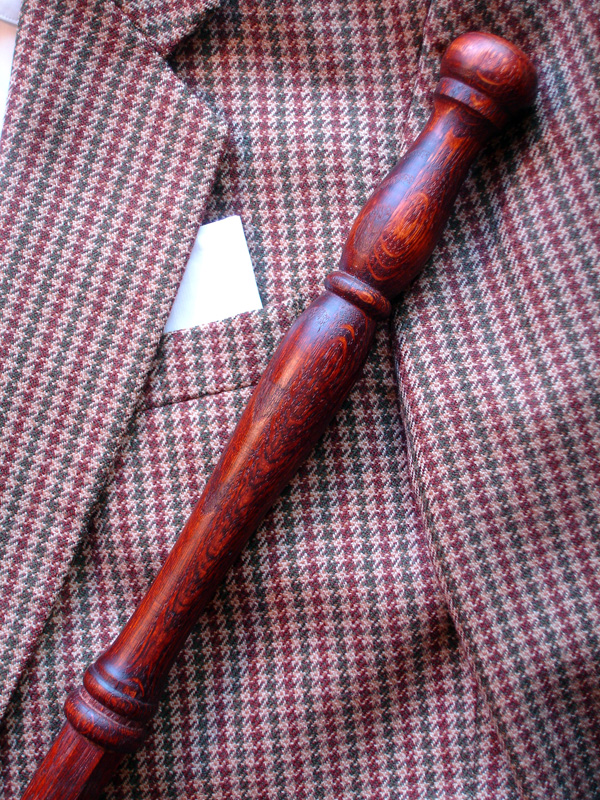
Country style staff in oak
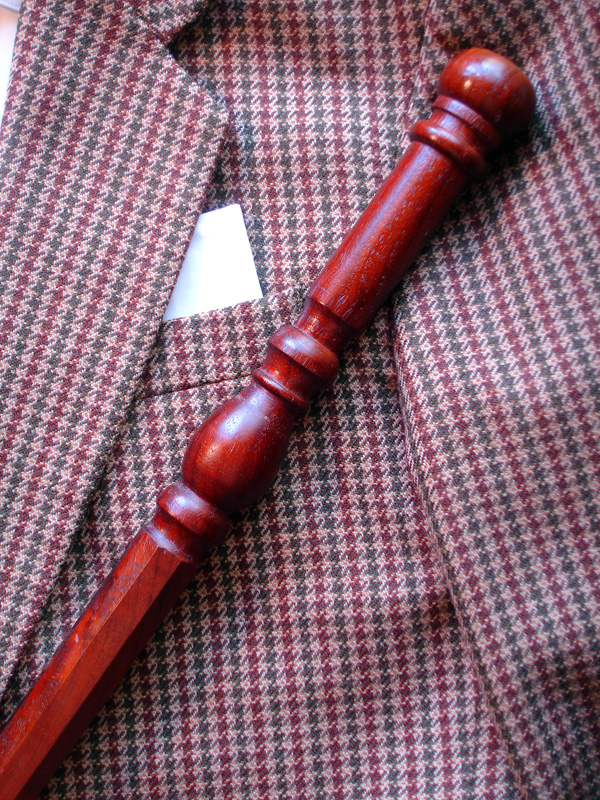
Country style stick in walnut with octagonal shaft
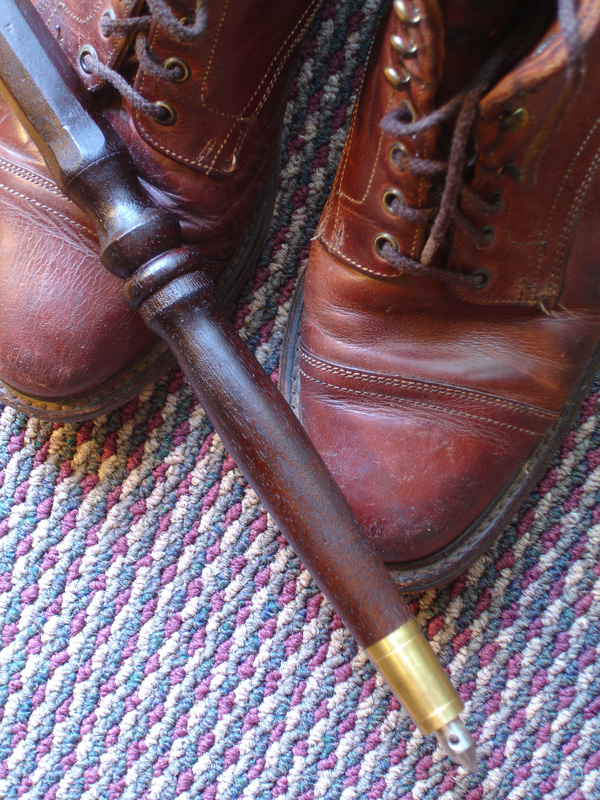
The typical country style tip
Utility.
The heaviest
stick, for completely un-navicable dogs, rocky shoreline and Londonderry
pub brawls.
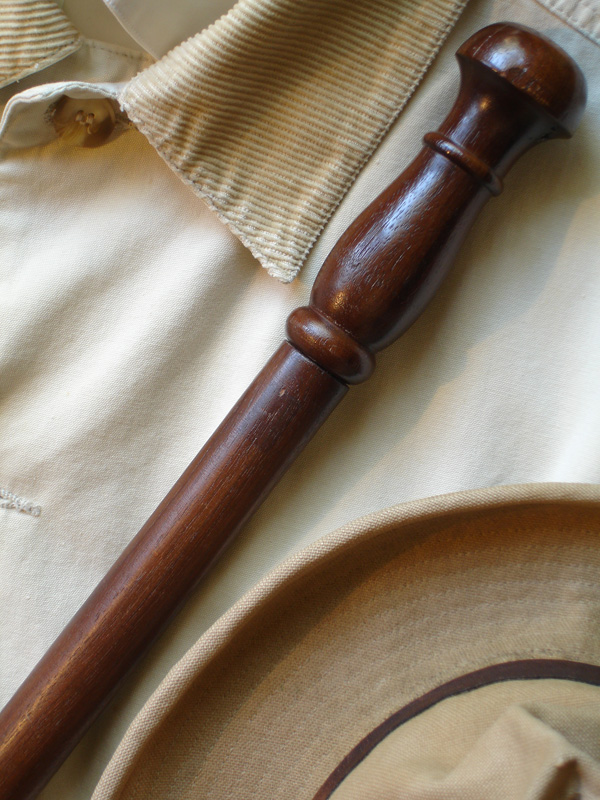
This stick
in walnut with a 1" diameter shaft.
The Alpenstock.
A staff
whose principal (if only) grip is some distance from the top with a beefy,
unprofiled shaft and a "country" tip. For your meeting with
Moriarty at Reichenbach Falls.
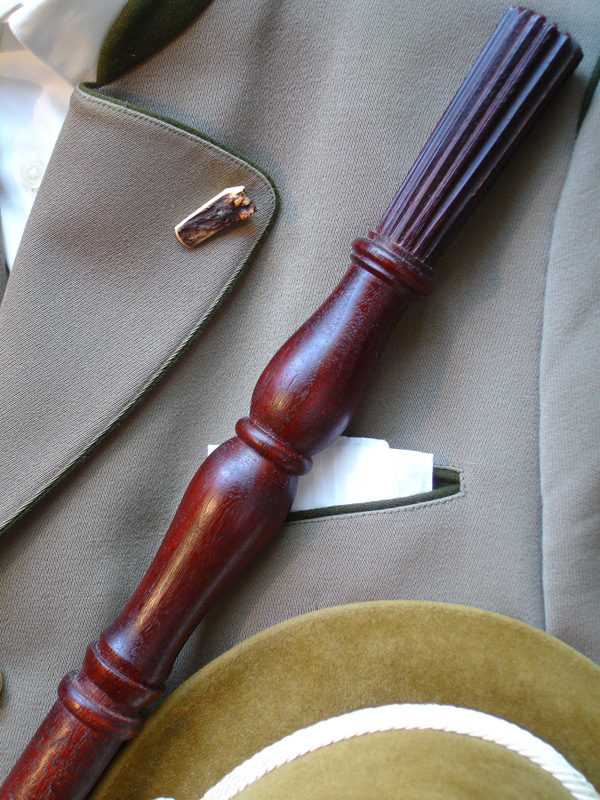
Fluted top in walnut
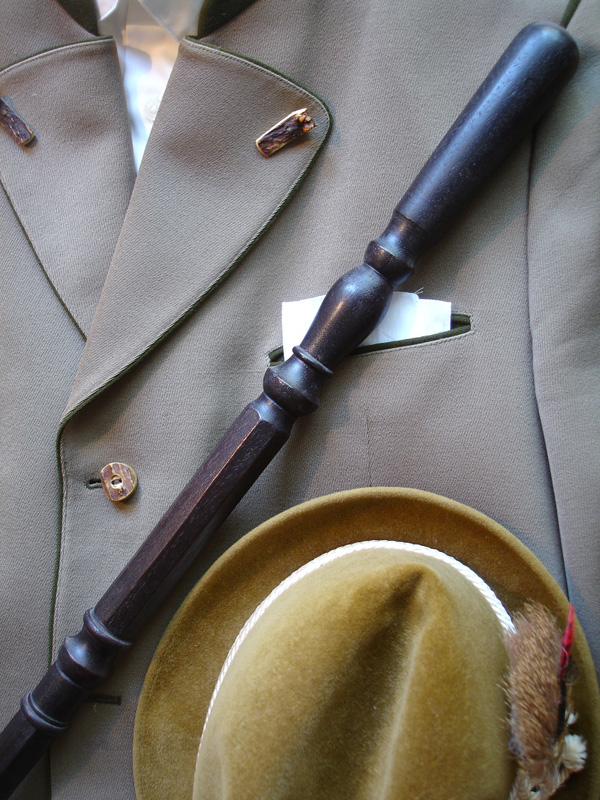
A unique layout with three hand positions: a top for downhill plodding, an inverted tulip for uphill groping and a lower octagonal-section grip for balancing the in-between.
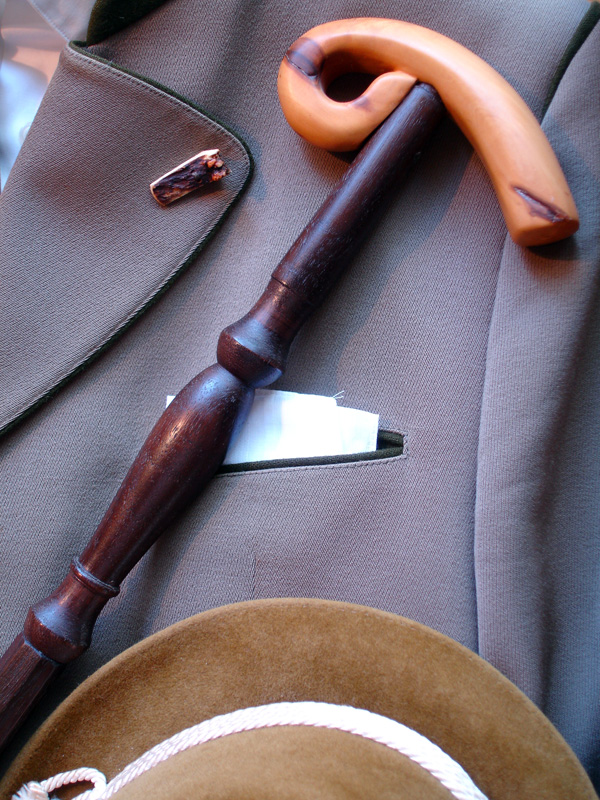
A handle reminiscent of natural ram's horn (I will not work with animal material, so don't even ask), in boxwood, on a mahogany staff with octagonal shaft.
Please inquire by email for pricing. And thank you for your interest.
Daniel Betsill
Stone Mountain, 2010
+++++
A Carved Crookstick.
From an
18thc. Irish design
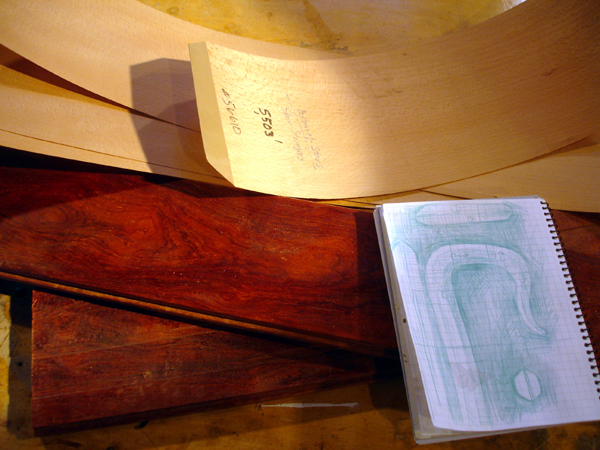
This stick will have a shepherd's crook handle a hehaxonal shaft profile. I am using Jatobah (Brazillian Cherry flooring planks) with a continuous liner of two layers of lacewood veneer for rigidity
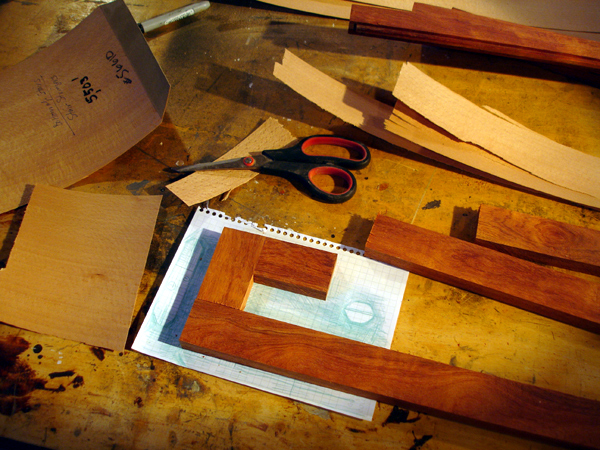
Laying out the handle pieces. The other side will have joints in different places for a strong layup.
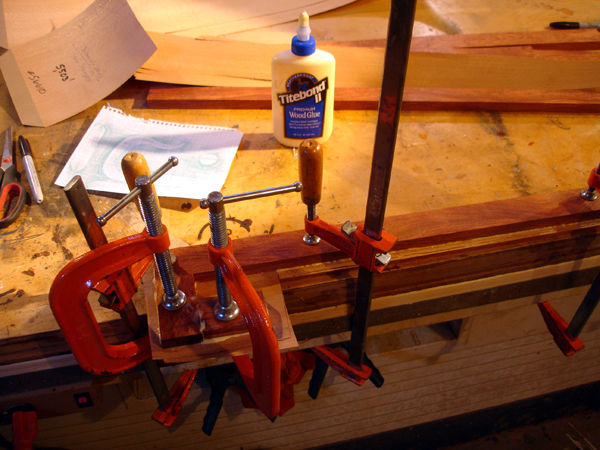
Clamping up the assembly with waterproof Tightbond
.jpg)
Getting the inside radii with a Forstner bit.
.jpg)
Working the bevel with a spokeshave and shaping the tip with a skew.
.jpg)
Finished with tung oil.
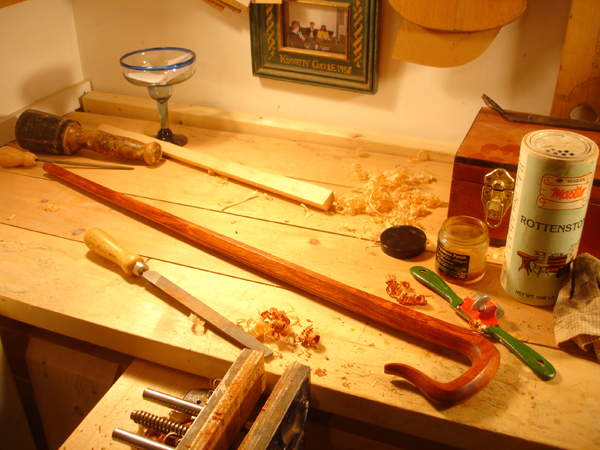
Some final shaping with the spokeshave and final finish with rottenstone suspended in beeswax. Buff to a low luster. In the distance, my jam session picture with Sean Ryan at Kinnitty Castle, increasing the Irishness of the moment.
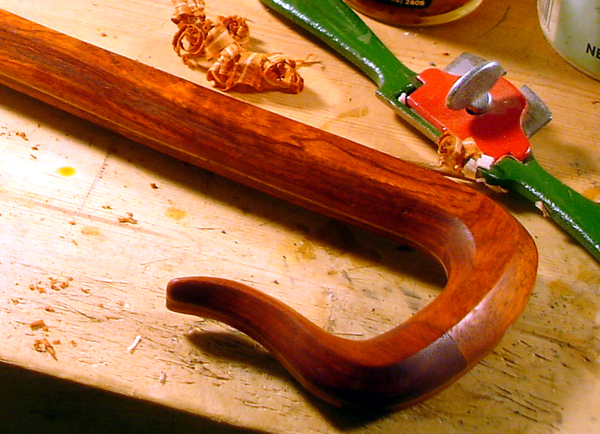
+++++
And here's a second iteration, a little slimmer in proportion.
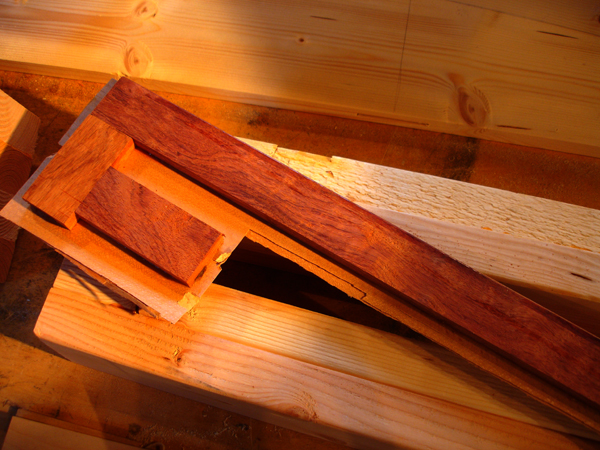
Laying up the pieces
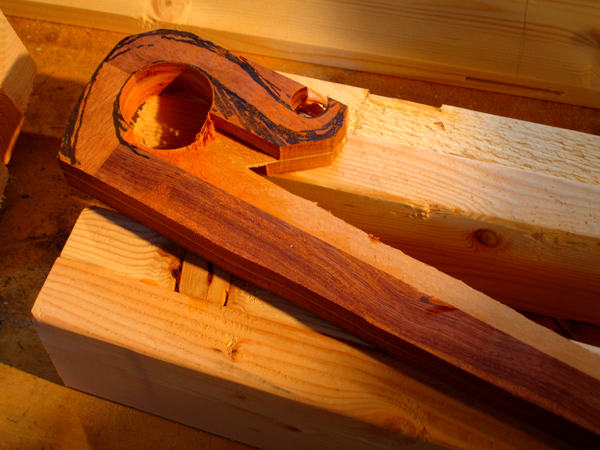
Sketching on the design and roughing out the shape on the drill press. Not so pretty at this point.
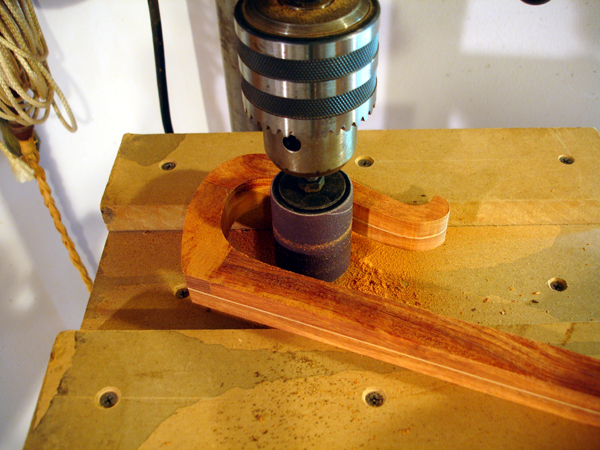
Final shaping the inside radius with drum sanders.
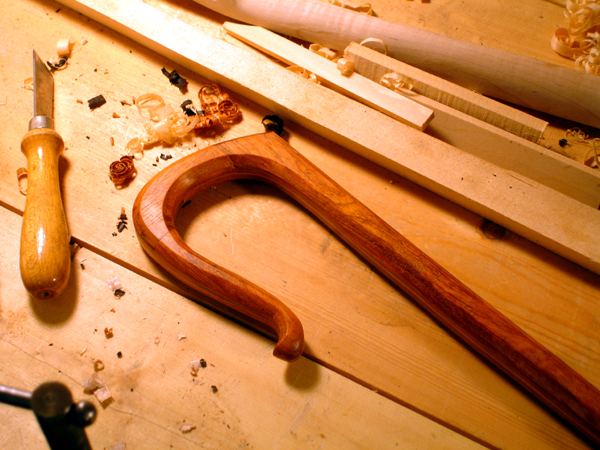
The finished implement
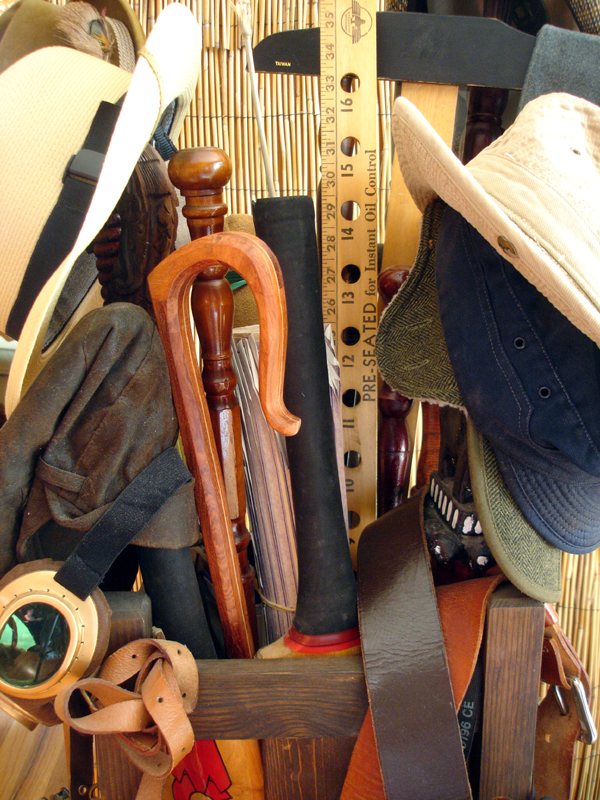
And with the menagerie.
+++++
“When you have no companion, look to your walking stick”
-Albanian Proverb
One should either be a work of art, or wear a work of art
-Oscar Wilde
He dressed meticulously in the fashion of the day, wearing a button-hole, chosen with care, and carrying a walking-stick, also carefully selected, from his large collection.
-Redman on Wilde
"Beware of the man who will not engage in idle conversation; he is planning to steal your walking stick or water your stock.”
-William Emerson
"That is why, no matter how desperate the predicament is, I am always very much in earnest about clutching my cane, straightening my derby hat and fixing my tie, even though I have just landed on my head."
-Charlie Chaplin
I carry a walking-stick, and like all sensible persons like it to have a good heavy-end that will swing out well before me. A year or two ago it became the fashion to pare away all walking-sticks to the shape of attenuated carrots, and I really believe I shortened my life in my attempts at getting a reasonable staff of the kind I was used to, so difficult it was.
-William Morris
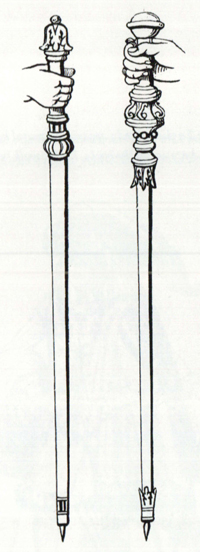
The young Tutankamen must have been a lover and collector of canes and staffs, because we found a large number of them in the grave chamber"
-Howard Carter
